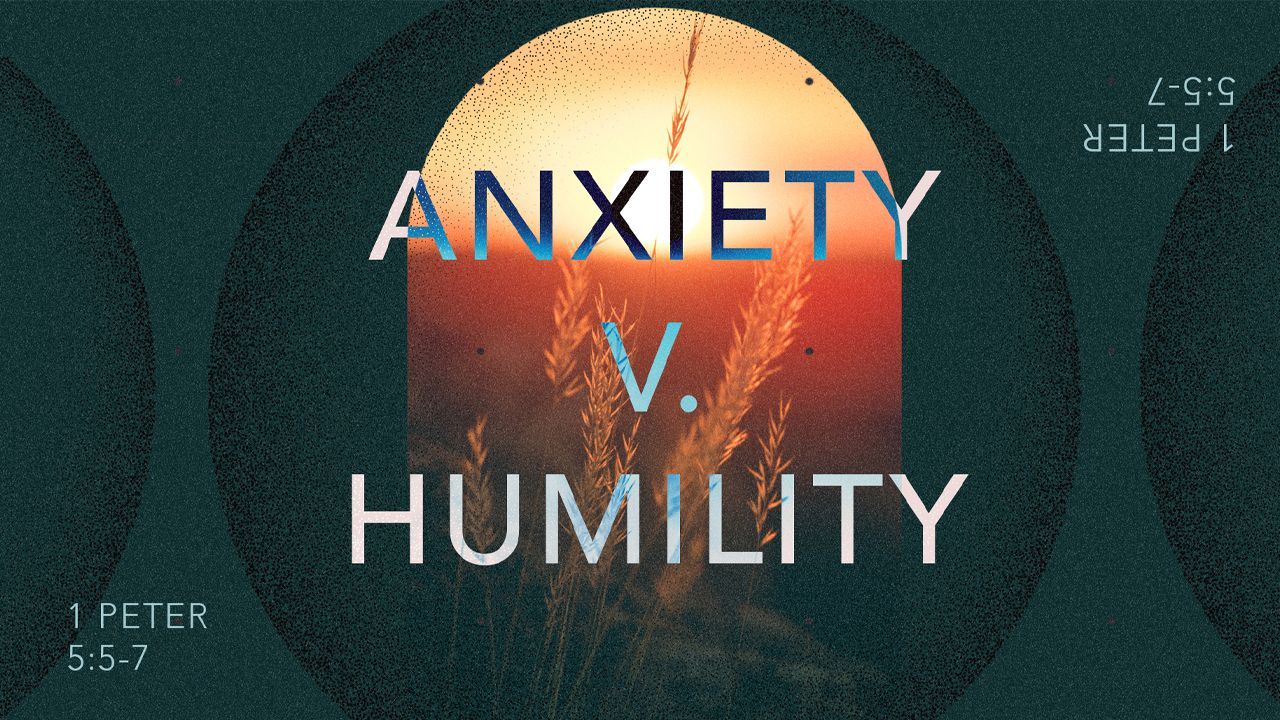Joining the Mission
October 31, 2023
Notes from Ky Martin's sermon on Sunday, October 29, 2023.
Sermon text: Luke 9:23-25
- Following Jesus requires extreme self-denial.
- Jesus is not an app that you add on; He’s a new operating system for your life.
- If you’re not denying yourself, you’re not following Jesus.
- Self-denial applies to all parts of life:
- Sin
- Galatians 5:17 “For the desires of the flesh are against the Spirit, and the desires of the Spirit are against the flesh, for these are opposed to each other, to keep you from doing the things you want to do.”
- “This means saying no to sin, no to ungodly attitudes, no to unhealthy relationships, no to self-indulgent acquisitions, no to things that waste our time, and no to physical pleasures that sap our spiritual strength…” -Philip Ryken
- Good things
- “…It also means saying no to many things that are good in themselves, but are not God’s will for us, at least at the present time” -Philip Graham Ryken
- Time
- Money
- Self-denial is not ultimate for the Christian.
- “He is no fool who gives what he cannot keep to gain what he cannot lose.” -Jim Elliot
- Philippians 2:8–9 “And being found in human form, he humbled himself by becoming obedient to the point of death, even death on a cross. Therefore God has highly exalted him and bestowed on him the name that is above every name…”
- Jesus is not to be pitied for what He lost but admired for what He gained.
Discipleship Questions:
- What are some areas where it’s difficult to exercise self-denial? Consider the following categories:
- Sins
- Good things
- Time
- Money
- Are you poised to receive input from people in this group if they see a lack of self-denial in these areas?
- Consider page 22 in the Advance Guide Book. Which category of giving would you put yourself in?
- What would it take for you to take the next step forward in that journey?
- John Piper said that for the Christian, there is no such thing as ultimate self-denial. Discuss this statement in light of Luke 9:24-25

Notes from Scott Sutton's sermon on Sunday, July 6, 2025. Sermon text: 1 Peter 5:5-7 Main Idea: God opposes the proud This is a warning that should shake our souls. There is a way of living that draws God’s opposition. Proverbs 3:34 "Toward the scorners he is scornful, but to the humble he gives favor" "Be not wise in your own eyes." Garden Connection. No guidance. No exaltation. No refreshment in our souls. God gives grace to the humble The grace of guidance The grace of peace that exceeds understanding The grace of lifted burdens God cares for us Application: You who are younger, be subject to the elders Clothe yourselves with humility toward one another Humble yourselves under the mighty hand of God Consider what it means to place yourself under the mighty hand of God! It is to lay hold of the reality that God is actively involved in the details of your day. It is to surrender the false and flawed thinking that we are in control. Cast your anxieties on God Being told, "Don't be anxious," can often feel the same as being told, "Don't be tall... or short.... or bald...." Some may say, "That's just who I am..." "One cannot truly humble oneself under God’s protection while racked with fear. Handing over fear to God and humbling oneself under his mighty hand happen together." -Barnett Anxiety is a form of pride Discipleship Questions: Why should we tremble at the reality that there is a way of living that draws the opposition of God? Anyone want to share about experiencing this? How would we know if God was opposing us? What are some things that will be seen in a life that is truly marked by humility? What is the difference between trying to do humble things and clothing ourselves in humility? What are the specific burdens/cares/anxieties that you are carrying that you need to cast upon the Lord? What are some actual action steps that would indicate that we are casting our anxieties on God? Why is anxiety a form of pride? How does humility change our relationships? Recount the deeds of the Lord! What are some ways that God has cared for you and your loved ones?

Notes from Ky Martin's sermon on Sunday, June 29, 2025. Sermon text: 1 Peter 5:1-4 Gen. 1:1-2 In the beginning, God created the heavens and the earth. 2 The earth was without form and void, and darkness was over the face of the deep. And the Spirit of God was hovering over the face of the waters. 3 And God said, “Let there be light,” and there was light. Churches should be led by a plurality of elders. Acts 11:30, Acts 14:23, Acts 15, Acts 16:4, Acts 17:1, Acts 20:28, Acts 21:17, Philippians 1:1, 1 Timothy 3:2, 1 Timothy 4:14, 1 Timothy 5:17, Titus 1:5, Titus 1:7, James 5:14 Instructions for Pastors: Shepherd God’s flock The words “God’s flock” remind the elders that the congregation does not belong to them. It is God’s church, and they are given the privilege and responsibility of shepherding it. -Thomas R. Schreiner Exercise oversight Oversee willingly (not under compulsion) 1 Cor. 9:16 For if I preach the gospel, that gives me no ground for boasting. For necessity is laid upon me. Woe to me if I do not preach the gospel! Oversee eagerly (not for shameful gain) 2 Cor. 2:17 For we are not, like so many, peddlers of God’s word, but as men of sincerity, as commissioned by God, in the sight of God we speak in Christ. Lead by example (not domineering) Strive for Humility 1. Pure Christian humility disposes a person to take notice of everything that is good in others, and to make the best of it, and to diminish their failings. - Jonathan Edwards The Chief Shepherd is Coming Shepherds God’s flock Exercises oversight 1 Peter 2:25 For you were straying like sheep, but have now returned to the Shepherd and Overseer of your souls. Oversees willingly (not under compulsion) Oversees eagerly (not for shameful gain) 2 Corinthians 8:9 For you know the grace of our Lord Jesus Christ, that though he was rich, yet for your sake he became poor, so that you by his poverty might become rich. Leads by example (not domineering) Hebrews 2:8b-9 we do not yet see everything in subjection to him. 9 But we see him who for a little while was made lower than the angels, namely Jesus, crowned with glory and honor because of the suffering of death, so that by the grace of God he might taste death for everyone. Discipleship Questions: What are some of the benefits of having multiple elders? How would you define the job / responsibilities of an elder? If you were to move to a new area tomorrow, what would you be looking for in a new church? Why, do you think, the “younger” are specifically instructed to be subject to the elders? How does someone who is “clothed in humility toward one another” behave in the church? Out of the five pastors at Crosspoint, who is your favorite? (just kidding, don’t ask that).

Notes from Lance Shumake's sermon on Sunday, June 22, 2025. Sermon text: 1 Peter 4:12-19 We shouldn’t be surprised when we encounter suffering John 15:18–20 [18] “If the world hates you, know that it has hated me before it hated you. [19] If you were of the world, the world would love you as its own; but because you are not of the world, but I chose you out of the world, therefore the world hates you. [20] Remember the word that I said to you: ‘A servant is not greater than his master.’ If they persecuted me, they will also persecute you. 2 Timothy 3:12 Indeed, all who desire to live a godly life in Christ Jesus will be persecuted We can rejoice knowing we are sharing in Christ’s suffering Matthew 5:11–12 [11] “Blessed are you when others revile you and persecute you and utter all kinds of evil against you falsely on my account. [12] Rejoice and be glad, for your reward is great in heaven, for so they persecuted the prophets who were before you. We don’t bring glory to God when we suffer for doing wrong We should choose to glorify God instead of being ashamed We should live in light of the coming judgment of God “Peter shows the meaning of our suffering from two sides. First, our suffering for Christ finds its significance in Christ’s suffering for us. We share now in suffering for him as we shall one day share in glory with him (4:13; 5:1). Secondly, our suffering does not destroy us, but purifies us. The fire of God’s judgment that we endure is not the fire of wrath that will consume the unbelieving.” —Edmund P. Clowney, The Message of 1 Peter We can entrust our souls to our faithful Creator Discipleship Questions: Why is it our tendency to be surprised when we encounter suffering? What are some reasons for rejoicing when you encounter suffering? Why is it so tempting to classify all suffering as persecution, even when we suffer for doing wrong? How can you resist feeling ashamed when you suffer for being a Christian? How do you think God uses suffering to purify His church? How does entrusting your soul to God help you find hope?


